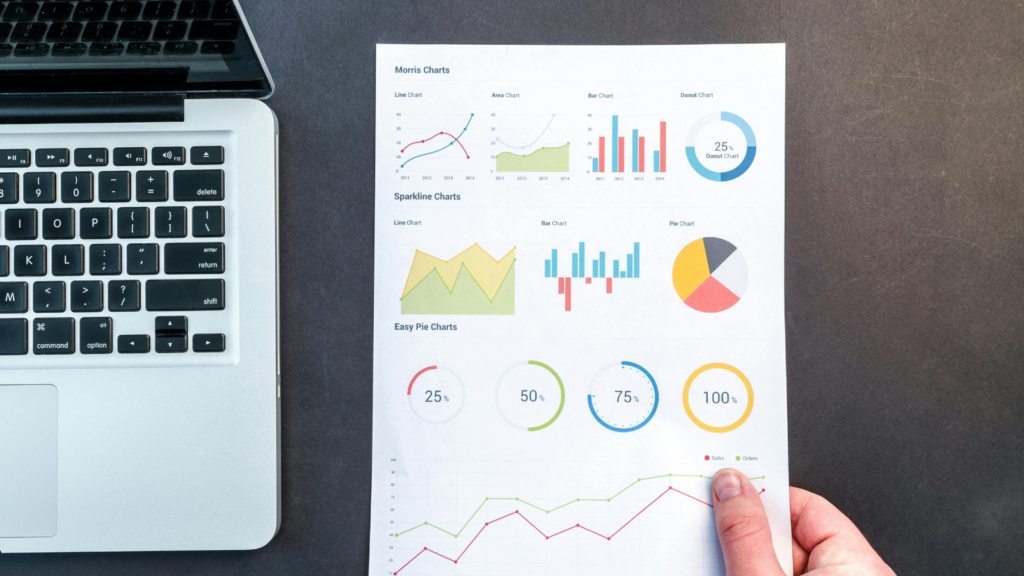
Navigating the digital landscape can often feel like trying to decipher a complex labyrinth. One key to unlocking this maze? SEO analytics reporting. It’s the compass that guides businesses to online success, turning raw data into actionable insights.
So, let’s delve into the world of SEO analytics reporting. We’ll explore its significance, how it works, and the ways it can propel businesses to new heights. Buckle up, it’s going to be an enlightening journey.
SEO Analytics Reporting
The Purpose of SEO Analytics
SEO analytics reporting performs a critical function. It drives organic traffic to websites, aligning with a key objective for many businesses, primarily online entities. SEO analytics reporting doesn’t just present data – it interprets these numbers, converts them into actionable insights, and guides strategy building.

When effectively utilized, these reports convey a myriad of specifics. They disclose which keywords drive traffic, how long visitors spend on a site, which content receives frequent visits, and which pages may require enhancements, to name a few examples. This information constructs a precise image of a user’s journey throughout a site, informing where tweaks could lead to the greatest progress.
Furthermore, SEO analytics demonstrate the impact of SEO practices and help assess whether the strategies implemented produce the desired results. Reports act as checkpoints, alerting when a shift in tactics might be beneficial. After all, these reports indicate what’s working and what’s falling short, making them a valuable monitoring tool.
Tools and Platforms for Effective SEO Reporting
Popular SEO Analytics Software
A broad assortment of SEO analytics software exists, each offering its distinctive features beneficial in different ways. Some popular examples include “Google Analytics”, “SEMRush”, and “Moz”.
Google Analytics, a free service from Google, provides comprehensive analytics data useful for understanding how visitors interact with your site. Specific features, such as Audience Overview, Traffic Sources, Content Overview, ensure valuable insights into your audience’s behaviour.
SEMRush, a versatile and user-friendly tool, specializes in competitor data. It offers in-depth reports on competitors’ top-performing pages, keywords, and other digital marketing aspects.
Moz, famous for its Domain Authority metric, presents a range of SEO tools that analyze, optimize, and monitor all SEO endeavours. It’s also beneficial for link building and competitor analysis.
Integrating Multiple Data Sources
While individual tools offer valuable insights, integrating data from multiple sources often contributes to a more comprehensive view of your SEO performance. Data integration platforms like Google Data Studio, Tableau, and Power BI offer ways to amalgamate information from distinct sources into a cohesive report.

Google Data Studio transforms data into informative, easy-to-read, and shareable reports. Not only does it integrate with Google-based products like AdWords and Google Analytics, but it also supports data integration from various third-party services.
Similarly, Tableau consolidates multiple data sources into a single interface, enabling a more nuanced understanding of your SEO data. It excels in visually engaging data representation.
Strategies to Enhance SEO Reporting
Customizing Reports for Different Audiences
Delivering personalized SEO reports emerges as the crucial first step to enhanced SEO reporting. Every audience segment, including clients, marketing teams, and executives, necessitates tailored reports to address their distinct requirements. For instance, marketers and SEO specialists favor in-depth reports detailing keyword performance, backlink analysis, and changes in organic traffic. Stakeholders, such as executives or clients, might prefer a high-level overview, prioritizing KPIs, trends, and overall return on investment.
Utilizing Automation in SEO Reporting

Incorporating automation paves the path towards efficient, streamlined SEO reporting. Regular tasks such as data collection, report generation, and distribution are time-consuming and often prone to errors. Introducing automation in these areas enhances data accuracy and begets substantial time savings.
Automated SEO reporting solutions harness data from tools like Google Analytics, SEMRush, and Moz, aggregating it to generate comprehensive SEO reports. Further, scheduled report updates provide real-time insights, enabling swift, data-driven decisions.
The Significance of SEO Analytics Reporting
SEO analytics reporting is no longer a luxury; it’s a necessity. It’s the compass guiding digital businesses, driving organic traffic and optimizing strategies. Interpreting data for actionable insights isn’t just a skill, it’s an art. So, embrace SEO analytics reporting, interpret the data, integrate it, customize it, automate it, and use it for real-time decision making. It’s the way forward for any digital business aiming for success.
